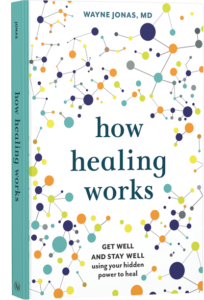During the current pandemic, your life has surely occupied a very different space, squeezing you into many different roles. You might be a remote worker right now, relegated to your home office or bedroom on video calls all day coordinating tasks. You might be a part-time educator, spending hours each day with your son or daughter to either help them with their schooling, or even serving as their interim teacher. Or, in this health crisis, you might now be a caregiver, accepting the responsibilities that come with supporting the health and well-being of family or friends.
As a caregiver, you have a job that changes constantly depending on your loved one’s health and needs. You deal with expectations and feel many emotions. Being a caregiver can be a long journey with many challenges. Taking good care of yourself, also called self-care, is essential to your health and sense of being well. It also helps the loved one you are taking care of.
Self-care is critical to surviving—making it from day to day. It is even more important to thriving—doing well in life. Each time you fly on an airplane, you are told to put on your own oxygen mask before you help others with theirs. When you are your best self, you can share your best with your family.
Living a healthy life is one of the main things you can do to feel and be as well as possible. How you eat, move, relax and connect to others are all important to caring for your body, mind and spirit.
If making healthy choices was tough for you before your loved one’s illness or injury, it may seem nearly impossible now when you have so much more to do. But it is possible.
Making Healthy Changes
You probably know what you “should” do. But the problem is actually doing it, whether you want to stop smoking, lose weight or take time for yourself.
Finding a way to enjoy a new healthy habit can help. Try giving yourself a reward for drinking water instead of a sugary soda or finding a buddy to walk with once or twice a week—at a same distance of course.
Eating, Drinking and Cooking
Water, Water Everywhere
Your body is made up of 60-70 percent water, so you are what you drink. Even if you don’t sweat, your body still loses water every day that must be replaced.
Getting enough water is important for keeping a healthy weight, keeping your muscles working and your skin and kidneys working correctly, and keeping your digestive system regular. Carrying a bottle of water with you everywhere you go may help you remember to drink more often. Also, try to drink a glass of water with every snack and meal instead of another type of beverage. Flavored sweet drinks rarely contribute to better health.
Food is Fuel
The physical burden of caregiving can take a toll on your body. Eating good whole foods can help you stay at your best. A healthy anti-inflammatory diet like the Mediterranean diet, with a focus on vegetables and fruits with few whole grains and an occasional small portion of animal protein will keep your body powered up.
It can help to focus on adding good whole foods rather than depriving yourself of things that don’t contribute to better health. An added bonus: Since vegetables and fruits contain mostly water, they will increase your hydration levels. Consider the following when focusing on food:
- Instead of thinking about what you shouldn’t eat, start with what you can add to your diet. A low-fat diet with moderate protein, high fiber, whole grains and at least five servings of vegetables and fruits a day is best for your health.
- Try keeping a food journal on your phone or on paper to track what you eat throughout the day. We are often not aware of what and how much we eat. Some mobile apps help with this. They can help motivate you to choose a healthier diet.
- Foods with sugar, corn syrup, artificial sweeteners and unhealthy fats have been linked to heart disease, cancer and diabetes. Ask your doctor how much of these foods you should eat, and read labels to choose healthier foods.
Move More!
Being a caregiver can be very hard on your body. Caregiving can be physical, especially if you have to do a lot of cleaning or laundry, take over new chores or even lift the person you are taking care of. Stress and lack of sleep also affect your body. Exercise is a great way to refresh your body and help your mind work more smoothly.
At least 30 minutes a day of exercise is important. Ask your doctor for advice on the best type of exercise and how much is right for you.
Movement in the Moment
Try fitting physical activity into your day, even when you can’t go to the gym or an exercise class.
Your doctor or a physical therapist may be able to give you a list of exercises and stretches to do when you have a few minutes to spare. Can you do leg lifts or ankle circles while waiting in a doctor’s office? Can you park farther from the store to get a few more steps in? Use the stairs instead of the elevator? These activities add up.
Just going on walks can be good for your health. Walking gives you many of the same health benefits as running. If you can do it with your loved one, family members or friends, then it can be a fun activity to share. Having a regular walking partner also helps get you out on your walks and gives you a way to have fun and be social, especially now.
Recharge at Night
You might know that 7 to 9 hours of sleep is the recommended amount for adults. But if you are someone’s caregiver, it can be hard to get this much sleep. Or you might get up several times each night to help your loved one. Your sleep affects many areas of life, including your health, pain level, memory, weight and mood.
Can You “Catch” a Sleeping Problem?
Sleep can be especially challenging if you sleep with a partner who has sleep problems. These can include not sleeping much at night (insomnia, or being unable to sleep), restless leg syndrome, teeth grinding or clenching, sleep apnea and sleepwalking. Sleep disturbances are common in people who had a traumatic brain injury, or TBI, people experiencing pain, those with medical conditions including cancer, those who are pregnant, women in menopause, people with depression, anxiety or bipolar disorder, or those taking certain prescription and over the counter medications.
Consider these tips for sleeping:
- Have a bedtime routine. In the hour before you go to bed, do quiet activities such as taking a bath or shower, reading a book or listening to music. Avoid exercising, playing video games, working or using your phone.
- Go to bed and wake up at the same time each day—even on weekends.
- Sleep in a dark room without a computer or other electronics, if possible.
- Avoid smoking, chewing tobacco or having foods and drinks with caffeine or a lot of sugar for several hours before you go to sleep.
- Exercise in the morning or early afternoon.
Ask your doctor for help if these tips are not enough. You could have a health condition that is causing your sleep problems. Many things can cause sleep problems, including physical changes, breathing problems, medication, pain and depression. Other causes include using too much alcohol, caffeine or nicotine; being stressed and not getting enough physical activity. You might also have sleep problems if you are a caregiver and worry or think a lot about your loved one. So, talking to your doctor or other health care provider is important. Let them know if you do have any sleep problems. They might be able to help you make the most of the sleep you get, even if it is not as much as before.
Making Time for Joy
Feeling grateful can help you deal with the challenges of being a caregiver, even in difficult times. It can keep you from feeling helpless and hopeless. Also, forgiving yourself, your family, or even God and the person you are taking care of can help you cope with feelings of blame or regret.
Instead of worrying about what you can’t control, spend it finding moments of joy. Here are some ways to do this:
- Dream new dreams. You may have had to put past dreams aside, but that doesn’t mean you can’t come up with new ones. Focus on new goals and dreams that you can work toward.
- Find a creative way to let your emotions out. Doing a puzzle, finding a coloring book and some colored pencils or playing music are great ways to take care of yourself. Other ways to find joy and release emotions are crafting, sewing, drawing, writing in a journal, gardening and photography.
- Look forward to the future. Hope is important, even if the person you are taking care of feels hopeless. Have something to look forward to, such as meeting a friend for coffee, taking a vacation or taking a full day away from caregiving.
- Keep inspiration on hand. Call a friend, watch an online service of worship, or carry inspiring quotes or pictures with you. All these can help during rough times.
- Do things that make you happy. Join a walking club. Say yes to an invitation to do something with a friend. Spend time with people who give you energy and help you feel rested or hopeful. Go back to a hobby you used to enjoy, like reading, knitting or doing woodworking.
- Laugh and play. Try a game night at home, play fetch with your pet, do a crossword puzzle or listen to a comedian on TV. Laughter and play can lower your stress level, give you more energy and help you connect with other people.
- Don’t compare your life to others. Allow your life to be unique.
Healthy behaviors can help you feel better overall. They can also help you avoid getting sick, or get better when you have a health condition. Making good food choices, exercising, coping with stress and avoiding unhealthy behaviors are important for your lifelong good health. It’s the reason why caregivers need to prioritize self-care: because it also helps the loved one you are taking care of.
All of the information referenced and cited above can be found—in even greater detail—in The Caregiver’s Companion. In addition to the resources in this guidebook, you can find free videos, fact sheets and journal exercises online. Visit drwaynejonas.com/caregiver for more information and to download the journal companion.

Your Health Into Your Own Hands
Drawing on 40 years of research and patient care, Dr. Wayne Jonas explains how 80 percent of healing occurs organically and how to activate the healing process.

